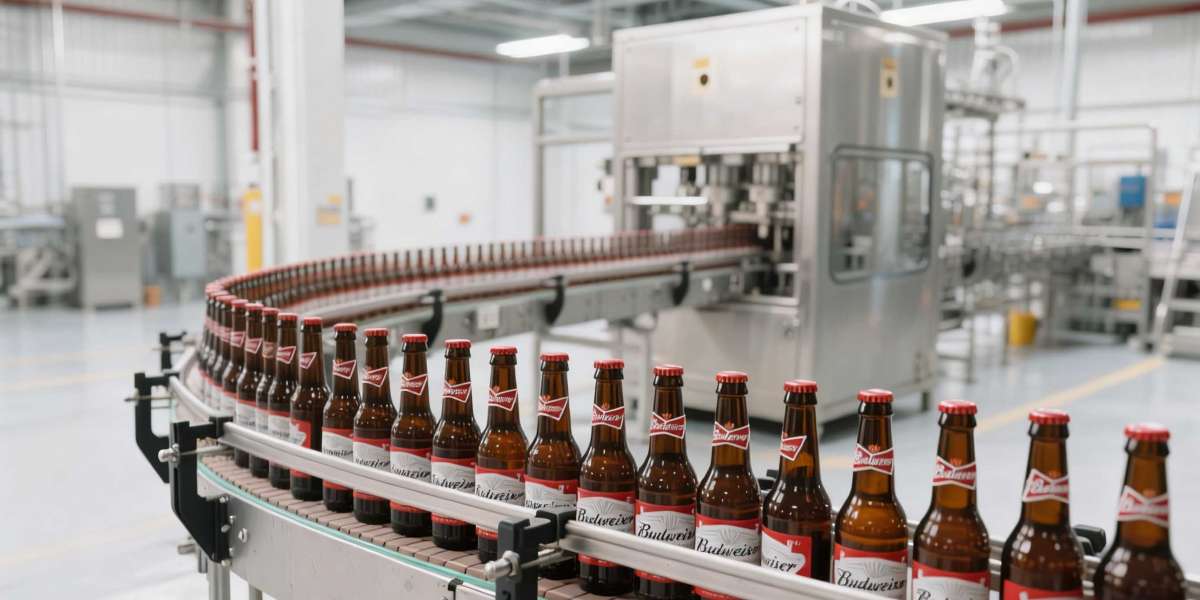Beer is delicate—even tiny amounts of bacteria, dust, or residue can ruin its taste, spoil batches, or risk consumer health. For breweries, a hygienic beer bottling machine isn’t just a “nice-to-have”—it’s the backbone of safe, high-quality brews. But with so many options, how do you pick the right one? The answer lies in focusing on hygiene-driven features and partnering with a trusted beer bottling machine manufacturer. Below, we’ll break down the simple, actionable steps to choose a machine that keeps your beer clean from filling to capping.
Prioritize Food-Grade Materials for Beer-Touching Parts
The first rule of a hygienic beer bottling machine is: only use machines where parts touching beer are made of safe, easy-to-clean materials. Bacteria thrive in porous or low-quality materials—so avoid cutting corners here.
Must-Have Material: SUS304 or SUS316L Stainless Steel
Every component that comes into contact with beer (filling heads, storage tanks, pipes, and nozzles) should be made of SUS304 or SUS316L stainless steel. This material is perfect for beer bottling because:
- It’s non-porous: No tiny gaps for beer residue, yeast, or bacteria to hide in (unlike plastic or cheap metal).
- It resists corrosion: Beer’s acidity (from hops or fermentation) won’t rust or damage it—keeping parts clean long-term.
- It doesn’t affect taste: Unlike some metals, it won’t leach chemicals into beer or alter its flavor.
- It’s easy to sanitize: It stands up to hot water, food-safe sanitizers, and high-pressure cleaning—critical for killing germs.
Avoid machines with plastic, aluminum, or low-grade steel parts for beer contact. These materials trap bacteria and are hard to clean, turning your machine into a contamination risk.
Choose Machines with Built-In Hygiene Features
A hygienic beer bottling machine doesn’t just use good materials—it has design features that actively prevent contamination. Look for these non-negotiable tools:
Clean-in-Place (CIP) Systems
Manual cleaning of a beer bottling machine is slow and unreliable—you’ll miss hard-to-reach spots like narrow pipes or filling head crevices. A CIP system solves this by:
- Automatically flushing the machine’s internal parts with hot, sanitized water (or food-safe cleaners).
- Reaching every beer-touching component (no more disassembling parts to clean).
- Cutting down on cleaning time (so you can focus on brewing, not scrubbing).
For small breweries, a basic CIP system works; for large-scale operations, look for advanced CIP with temperature controls (hotter water kills more bacteria) and cycle timers.
Detachable, Easy-to-Clean Parts
Even with CIP, some parts (like filling nozzles or cap holders) need occasional deep cleaning. Choose machines where these parts:
- Can be removed by hand in minutes (no special tools needed).
- Have smooth, crevice-free surfaces (no hidden spots for residue).
- Are dishwasher-safe (for small parts) or compatible with sanitizing baths.
Detachable parts mean you can sanitize every inch of the machine—no shortcuts to hygiene.
Aseptic Filling for Shelf-Stable Beers
If you make beers that don’t need refrigeration (like some lagers or bottled ales), a beer bottling machine with aseptic filling is a game-changer. This feature:
- Fills bottles in a sterile, closed environment (no air or airborne germs touch the beer).
- Uses nitrogen flushing: Replaces air in the bottle with nitrogen before capping. This stops oxidation (which ruins taste) and eliminates oxygen that bacteria need to grow.
- Seals bottles immediately after filling: No time for germs to sneak in before the cap is on.
Match the Machine to Your Brewery’s Size (for Consistent Hygiene)
A machine that’s too big or too small for your production will hurt hygiene. For example:
- A giant automatic machine for a small brewery is hard to clean (too many parts to manage).
- A tiny semi-automatic machine for a large brewery leads to rushed cleaning (you’ll skip steps to keep up with demand).
Choose the right size based on your output:
Small-to-Medium Breweries (200–1,000 Bottles Per Hour)
Semi-automatic beer bottling machines are ideal here. They:
- Are compact (easy to fit in small spaces and clean thoroughly).
- Require minimal staff (one person can operate and clean them).
- Have fewer parts (fewer spots for contamination).
For example, a craft brewery making 500 bottles of IPA a day can use a semi-auto machine. It’s fast enough to keep up, and its simple design makes sanitization quick and reliable.
Large-Scale Breweries (3,000+ Bottles Per Hour)
Fully automatic beer bottling machines work best. They:
- Integrate CIP and aseptic filling into one line (no manual cleaning gaps).
- Have sensors that detect contaminated bottles (and reject them before they ship).
- Maintain consistent hygiene even at high speeds (no rushed steps).
Large breweries need this level of automation to keep up with demand without sacrificing safety.
Vet the Beer Bottling Machine Manufacturer for Hygiene Expertise
A machine is only as hygienic as the manufacturer that builds it. To avoid low-quality, risky options, screen beer bottling machine manufacturers with these checks:
Ask for Hygiene Certifications
Reputable manufacturers have their machines certified to global food safety standards. Demand proof of:
- CE certification (for European markets) or FDA approval (for the US): Ensures the machine meets strict rules for food contact and hygiene.
- ISO 22000 certification: Means the manufacturer follows food safety management systems during production (no cutting corners on materials or design).
Manufacturers without these certifications often skip hygiene steps to save money—don’t trust them with your beer.
Check for Pre-Delivery Hygiene Testing
A good beer bottling machine manufacturer tests every machine for contamination before shipping. Ask them to:
- Run a test batch with water (or a beer-like liquid) and swab key parts (filling heads, tanks) for bacteria.
- Share the test results (or a video of the test) to prove the machine is clean and functional.
This step ensures you’re not buying a machine that’s already a contamination risk.
Ensure Post-Sales Hygiene Support
Even the best machine needs proper use to stay hygienic. Choose a manufacturer that:
- Trains your team on cleaning protocols (e.g., how to run the CIP system, when to replace parts).
- Supplies genuine, food-grade replacement parts (like stainless steel nozzles or gaskets) if something wears out.
- Answers hygiene questions (e.g., “How often should we deep-clean the filling heads?”) to keep your process on track.
Choosing a hygienic beer bottling machine is about three simple things: safe materials, smart hygiene features, and a trusted beer bottling machine manufacturer. By focusing on these, you’ll keep your beer clean, your customers safe, and your brand’s reputation strong.
Remember: Great beer starts with great hygiene. The right machine ensures every bottle you sell tastes as fresh and safe as the day it was brewed.
If you need a quick reference tool, I can help you create a beer bottling machine hygiene checklist that summarizes the key points (materials, features, manufacturer checks) for easy use during your selection process. Would you like that?








